International Heritage Centre blog
Guest blog: Black History Month
Black History Month
In our first ever guest blog, William Booth College librarian Winette Field explores the history of black Salvationists, evangelists and missionaries in the UK.
Black History Month is once more upon us. It is of course but one strand of human history but such occasions offer opportunities for the deepening of understanding, and appreciation, of specific things within the wider context of events.
Black people have been in the UK since the earliest of times and, on the whole, form three groups: the sojourner, the settler, and those born here.
Agnes Foster, born in Jamaica, lived for over 40 years in England and is said to have soldiered at Eccles corps and been an officer at South Shields III corps in 1883. She went on to found a mission in Jamaica which was incorporated into The Salvation Army in 1887.
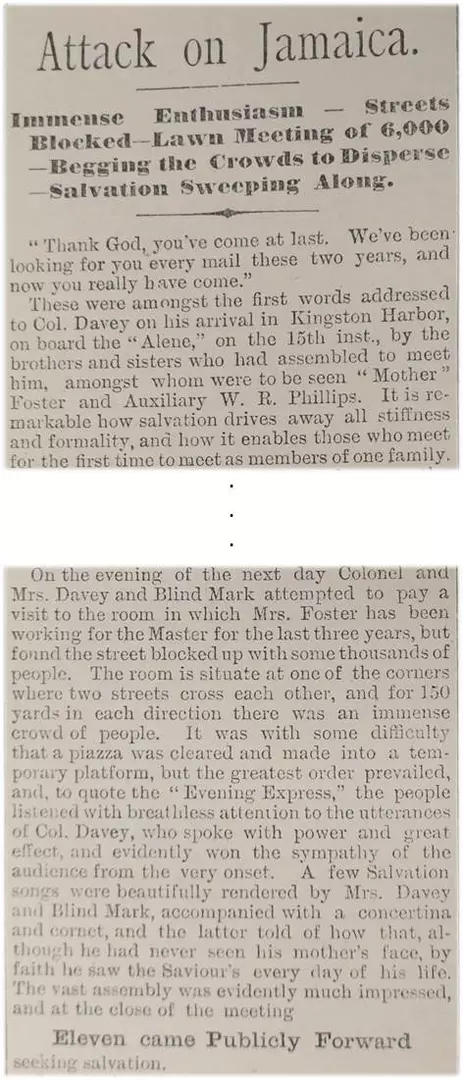
In London, Joseph Roker was attacked for carrying the Salvation Army ‘banner’ (Daily News, 17 August 1882) and one of his assailants went to prison.
Meanwhile an unnamed black man led the march in Scarbrough in 1882 which led to a cry for “‘music hall and circus type’ publicity” to be stopped (Hull Packet, 15 June 1883) – the problem being alleged harm to a rider thrown from their animal due to the noise of Salvationists. Musically the banjo was made popular in the 1840s following travelling shows visiting from North America. Joe Norton is shown holding his in an 1886 image of the Conqueror caravan at Burford Corps.
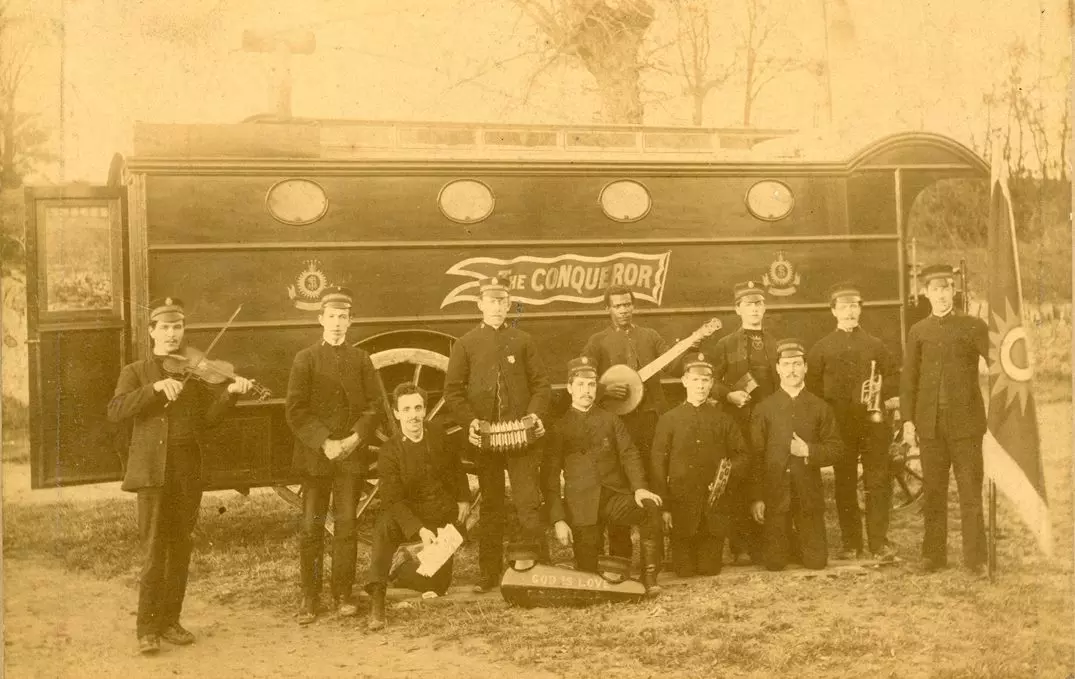
In some ways it is surprising how much travel took place. British history is littered with black men, and women, acting as missionaries, like Thomas Pinckney, (a naturalised British subject, ordained in 1853, working in Liberia until mid-1857) preaching at Clifton’s parish church 29 January 1858 (Bristol Mercury, 6 Feb 1858).
Others like Jacob Vivour Pratt came for educational purposes. Pratt started at the independent Monkton Combe School near Bath, went on to Oxford and having gained a law degree went to Edinburgh where he became a doctor before heading to East Nigeria in 1895. In the same year The Daily Telegraph (1 September 1895) recorded that a Daniel Jenkins was denied the opportunity to let “loose a brass band of thirteen” black children “upon an urban population suffering from nerves”. Ironically despite being denied permission the magistrate gave the Rev. Jenkins one pound. Not a Salvationist, Jenkins spoke at Spurgeon’s Tabernacle, Elephant and Castle, visited orphanages in South London, and ultimately took a band to the 1914 London Anglo-American Expo.

Later in the 20th century (1937) Captain Jonah Munyi travelled from East Africa to join the Enthusiasts training session at what is now the William Booth College. The late 1930s also saw Indian students participating in the Dauntless Session as overseas cadets. Munyi went on to participate in a session at the International College for Officers (1955) and represent The Salvation Army at the World Council of Churches in New Delhi (1961). He died in 1966 but not before becoming the first East African to serve as General Secretary for East Africa (1965).
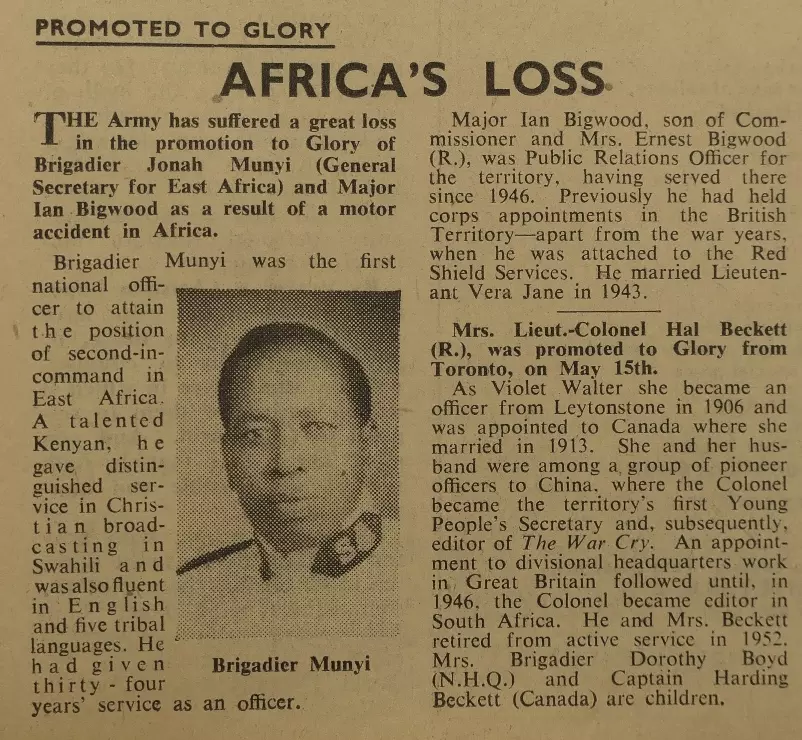
Looking to the Caribbean, a note in the William Booth College diary records that the SS Empire Windrush (1948) contained 10 tailors destined to work at the Salvationist Publishing and Supplies shop, Judd Street. It is thought that initially they lived at the College.
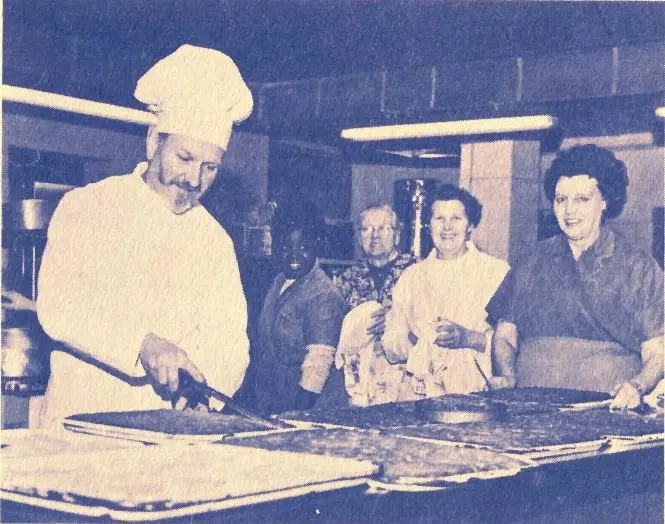
It is impossible to say how many followed in their footsteps but The Followers of Christ commissioning brochure (1972-74) contains a photograph of a black woman working in the kitchens at William Booth College. Subsequent brochures indicate other black lay staff at the training college with the occasional black officer teaching. One such officer is Matt Spencer, who is currently co-leader at New Addington corps and is the author of several songs including 'Humbly Bow' and 'We Will Rejoice', the latter written with his daughter. In another of his postings he prepared a denominational memorandum to the Joint Committee on Humans Rights.
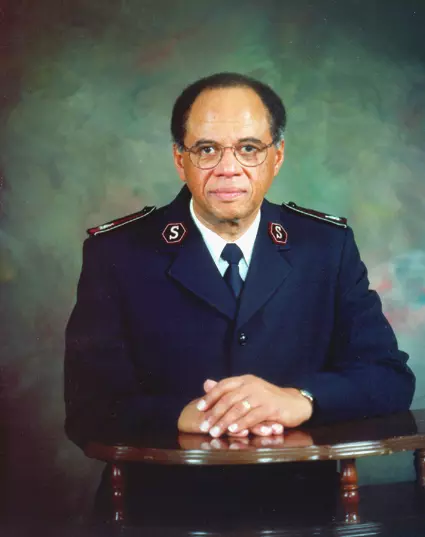
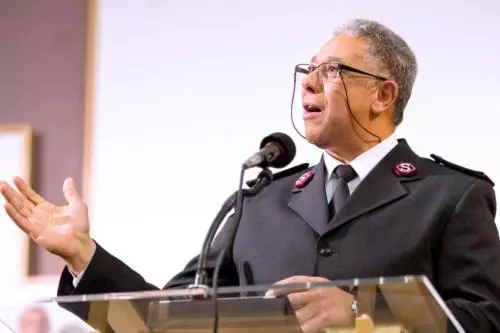
2002 saw African-American Israel L Gaither appointed Chief of the Staff at International Headquarters in London, while 2013 saw South African Clive Adams appointed as UK and Ireland Territorial Commander.
Coming from 131 countries who knows what the black Salvationists of tomorrow will contribute to British history, but anyone interested in learning specifically more about the Black presence in Britain should visit the Black Cultural Archives in Brixton and the work of South Londoner Jeffrey Green.
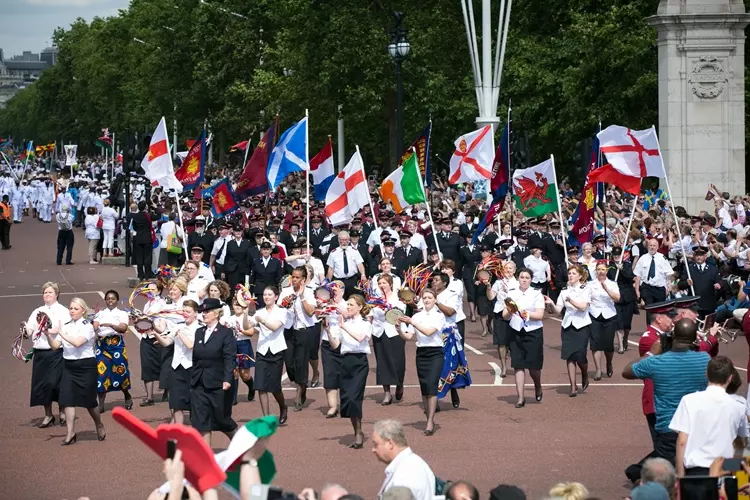
Winette
October 2018
Read other blogs from the Heritage Centre
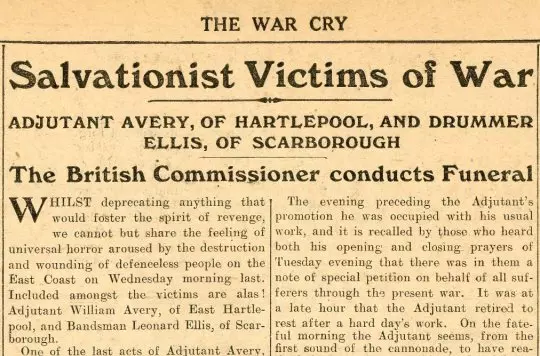
Adjutant William Avery and the 1914 Bombardment of Hartlepool
Less than five months after the outbreak of the First World War, on 16 December 1914, Scarborough, Hartlepool and Whitby, were attacked from the sea....
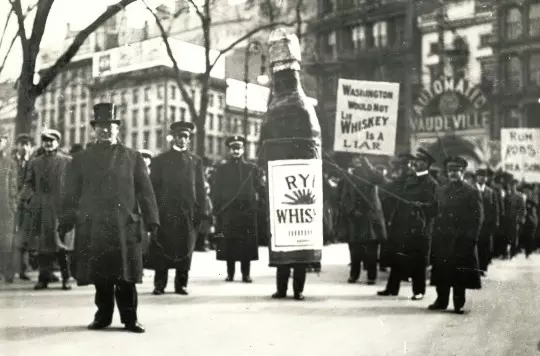
‘Drunkards’ Raids’ & ‘Boozers’ Days’: The Salvation Army’s ‘war on drink’
In the 1890s The Salvation Army described itself as “a universal Anti-Drink Army” and this blog looks at two examples of this war on drink...
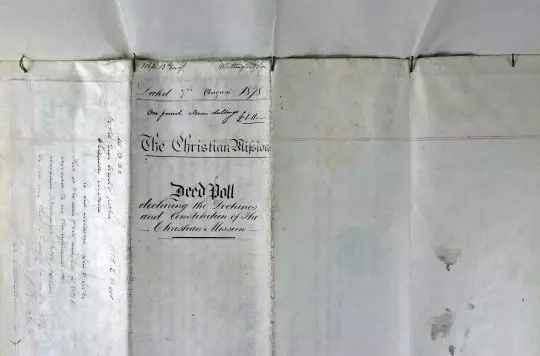
‘The Foundation Deeds have never failed’: The Salvation Army Acts deconstructed
This blog came about as a result of a series of enquiries about The Salvation Army’s Acts of Parliament – what they are and why they were created...
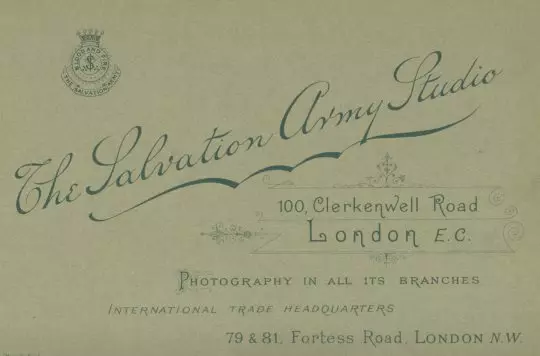
Identifying historical photographs
Identifying the sitters or occasion shown in a photograph is one of the things we are often asked to do but sadly most of the time it is impossible...